Top Funding Priorities 2025
Every gift to the MetroHealth Foundation – whether from a small family or a Fortune 500 company – demonstrates a commitment to caring for the community, just as MetroHealth has done since it opened in 1837.
Our focus is on critical needs in the following areas:
Humans spend a third of their lives as older adults, yet much of the world treats them as if they don’t matter. Older adults are an extremely diverse population, and they’ve had 75+ years of life experience to develop unique health needs. Caring for them requires skill and practice, which is both an honor and greatly rewarding.
A Beloved Leader and Teacher
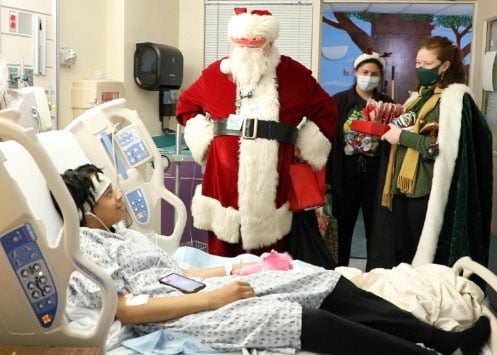
In his three-decade tenure at MetroHealth, James W. Campbell, MD, MS, cared for countless older adults with compassion and good humor and inspired future generations of geriatricians. Dr. Campbell retired in fall 2024 as Chair of the Department of Geriatrics, Director of Post-Acute Care and the MetroHealth Care Partners ACO, Medical Director at Jennings Center for Older Adults, and Professor of Family Medicine at Case Western Reserve University. During his career at MetroHealth, Dr. Campbell chaired MetroHealth’s Department of Family Medicine, revitalized the Geriatric Fellowship program, oversaw the building of the former The Elisabeth Severance Prentiss Center for Skilled Nursing and Rehabilitation, and led the Senior Health & Wellness Center—the first clinic in Cleveland to unite numerous medical specialties unique to older adults’ health needs at one location. In the community, Dr. Campbell held board positions with the Alzheimer’s Association of Cleveland, Deaconess Senior Housing, Association of Directors of Geriatric Academic Programs, and American Geriatric Society, among other organizations.
The James W. Campbell, MD, MS Endowment in Geriatric Medicine will:
- Honor Dr. Campbell by supporting geriatric patient care, education and research.
- Provide an enduring tribute, celebrating Dr. Campbell’s retirement and his many accomplishments and dedication to improving the health of older adults.
How to Support The James W. Campbell, MD, MS Endowment in Geriatric Medicine
- One-time gifts – visit the Foundation Donation page to give via:
- Credit card (choose the “James W. Campbell, MD, MS Endowment in Geriatric Medicine” designation)
- Check made payable to The MetroHealth Foundation (note Campbell Endowment)
Questions? Contact Greg Sanders at 440-592-1319 or gsanders@metrohealth.org
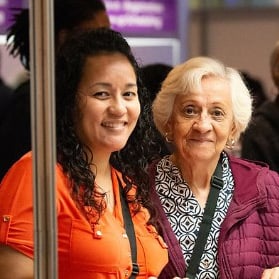
Community Health Workers
Community health workers will be joining the staff throughout our facilities, including Emergency Departments, to identify people visiting the ED for reasons related to basic human needs, such as a meal or warm shelter, and connect them with helpful resources, relieving the nursing staff of this time-intensive task to better focus on patient care.
Food as Medicine
In partnership with the Greater Cleveland Food Bank, MetroHealth’s Food as Medicine Clinics provide eligible patients with a food “prescription” for two visits per month, when they receive a three-day supply of healthful food for their entire family. In 2023, more than 40,000 meals reached Cleveland families through this program.
Students Are Free to Express (SAFE) Project

Implemented directly in the classroom during the school day, SAFE provides K through 12th-grade students professional teaching artists who use spoken word, theatre, music, dance, and visual arts to promote individual resilience; encourage emotional awareness and regulation; validate and normalize the experiences of youth; and foster hope and encourage forward thinking.
Institute for H.O.P.E.™ General Fund
Through the Institute for H.O.P.E.™, MetroHealth can assess a more complete picture of patients’ lives, including social needs such as access to food insecurity, safe housing, transportation, job opportunities and more. Gifts to the General I4HOPE fund can be used to support the immediate needs of I4HOPE programs, such as those listed above as well as:
- Center for Arts in Health – Integrates performing, literary and visual arts into healthcare and community settings for therapeutic, educational and expressive purposes.
- Community Advocacy Program: A Medical-Legal Partnership - MetroHealth caregivers team with attorneys from The Legal Aid Society of Cleveland to help at-risk patients overcome barriers to good health.
MRI Functional Electrical Stimulation (FES)
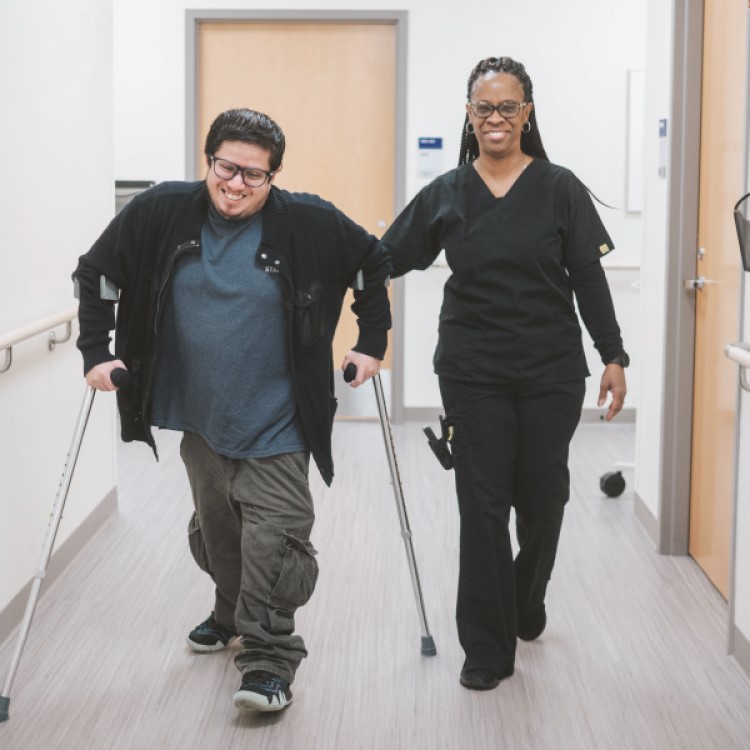
MetroHealth’s FES Center is world-renowned for the development and clinical implementation of sophisticated electrical stimulation systems that reanimate paralyzed muscles; restore limb, trunk, respiratory, bowel and bladder function; and facilitate neurological recovery following stroke, brain injury and spinal cord injury.
MRI Research Equipment Fund
To complement MetroHealth’s state-of-the-art clinical, research and education space in the Old Brooklyn Health Center, additional resources are needed to improve laboratory space and purchase equipment required to support active research projects.
Benjamin S. Gerson Endowment
MetroHealth’s Benjamin S. Gerson Family Resource Center connects patients with community resources after a life-altering event, going beyond rehabilitative therapy to support them as they navigate their new normal. Patients are referred to resources to assist them with finding accessible housing, financial counseling, mortgage modifications, transportation, home health and respite care, medical equipment and more.
The MRI Endowed Professorship in Physical Medicine and Rehabilitation
In collaboration with Case Western Reserve University’s School of Medicine, this endowment will provide a guaranteed stream of income to continue and expand innovative research, facilitate innovative collaborations, attract talented clinicians and scientists, and support faculty retention.
Launched twelve years ago in an elementary school classroom, the School Health Program provides traditional, much-needed primary care as well as urgent medical care to at-risk students—right at school. Today, this program is a national model for school-based health delivery.
In the early 2010s, MetroHealth caregivers saw a decline in pediatric primary care visits, an increase in emergency room utilization (especially by children with asthma), vast unmet health needs among the city’s children and worrisome gaps in their health outcomes. Recognizing that the traditional model of care—waiting for parents/guardians to bring children to care providers—wasn’t working for the children who needed care the most, MetroHealth decided to bring the care to them.
Launched in 2013 as a single clinic inside a converted classroom in an east-side Cleveland elementary school, the SHP has become a national model for school-based health, providing clinical services for more than 4,800 students enrolled at more than 25 schools throughout Cuyahoga County. Now operating under the MetroHealth Community Health Centers, a public entity Federally Qualified Health Center Look-Alike, the SHP team of providers, nurses, program assistants, drivers and community health workers have built relationships with students and earned their trust. Consequently, students participating in the program have fewer Emergency Department visits, are 97% more likely to have completed a well-child exam, are more likely to be up to date on required school immunizations and show improvement in academic performance. Additionally, researchers state in “Healthy Students, Strong Learners”, a documentary produced by Regional Education Laboratory (REL) Midwest with WVIZ/PBS ideastream in 2020, that there is proof of school health programs improving academic outcomes in schools across the Midwest, including Cleveland. Based on national school health research, MetroHealth anticipates that long-term outcomes also will result in improved graduation rates.
The MetroHealth name is synonymous with first-rate emergency care, making the Main Campus Emergency Department (ED) the best place one hopes they never have to visit. It is heavily used and relied upon by the community—and the care provided is often a matter of life or death.
The MetroHealth System continues to make major investments to maintain, update and transform its campuses. MetroHealth has invested over $1 billion to transform its main hospital facilities in Cleveland’s Clark-Fulton neighborhood, resulting in the construction of the state-of-the-art Glick Center on its Main Campus and the Behavioral Health Hospital on its Cleveland Heights campus.
The next phase of this transformation is to update its outpatient facilities, including a multimillion-dollar renovation of the Main Campus Emergency Department. To advance this project, MetroHealth has requested state capital funds, with the intention of also securing philanthropic contributions and system investment.
Funding for the renovations will bring improvements to the ED that, over time, will reduce health care costs and improve outcomes. The capital upgrades will bring the ED up to modern standards, improve appearance and function, as well as support infectious disease prevention and energy efficiency. Specifically, renovations requiring specialized materials will reimagine flooring, walls, cabinetry, doors and restrooms to create a safer and more efficient space for MetroHealth patients and the public. Groundbreaking is anticipated to occur in late 2024, with an estimated project completion in late 2025.
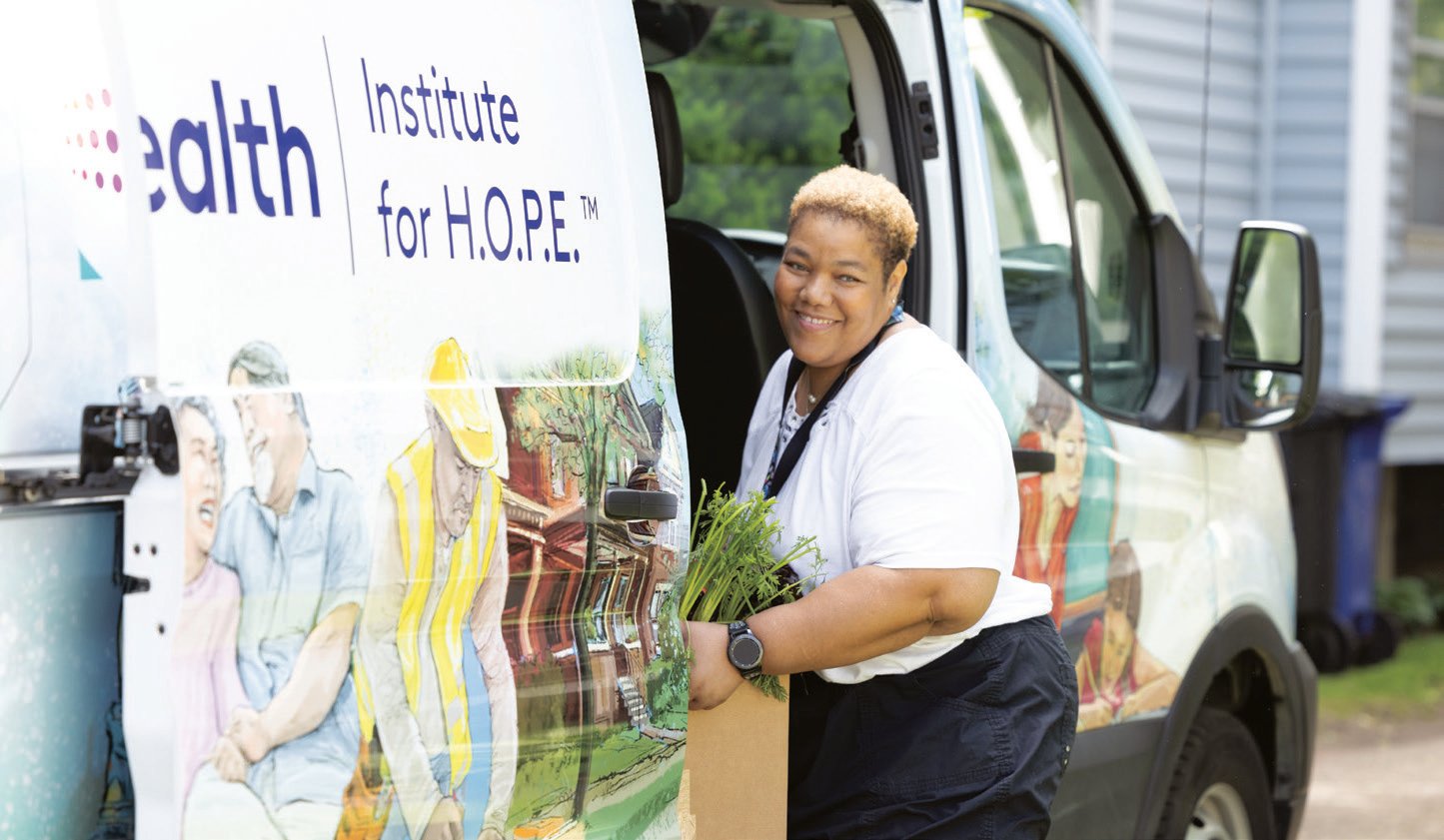
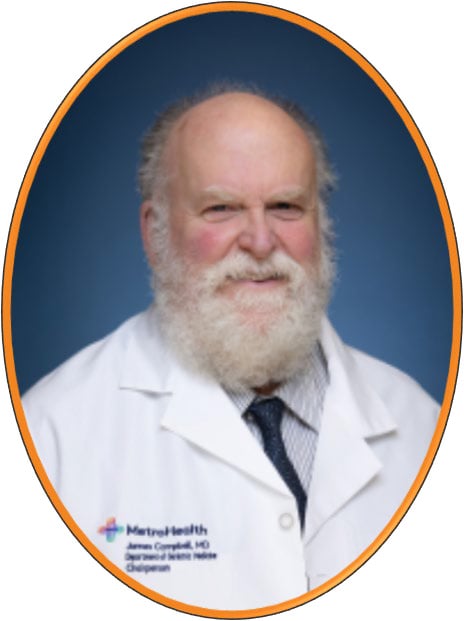 James W. Campbell, MD, MS
James W. Campbell, MD, MS